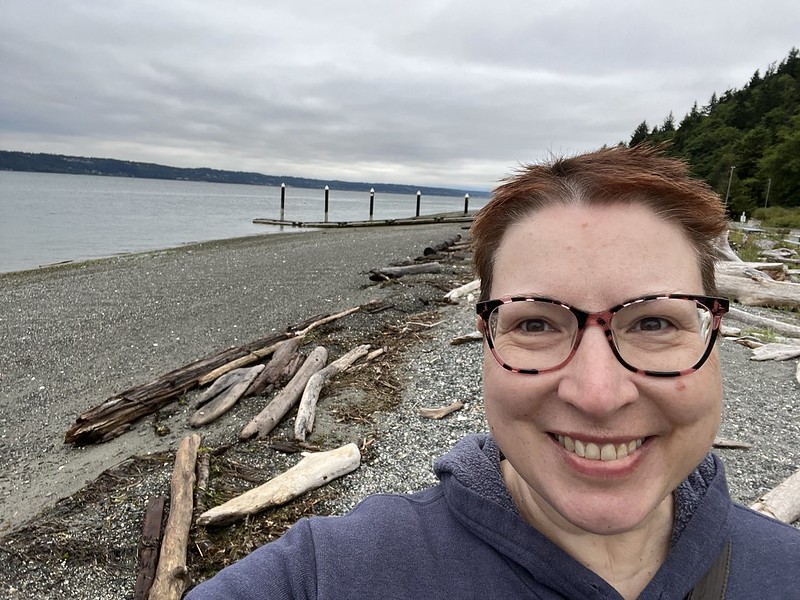Everyone Needs Sabbaticals
Spring 2023 was an unbelievably difficult trimester. I fell ill; I couldn’t keep up with the day-to-day demands of teaching; I had the most pervasive brain fog I’ve ever had and couldn’t see a way through the difficulties I was facing because of it. Gracious colleagues made it possible for me to crawl to the end of the term, but it was not a good term for me or for my students. I have never been so relieved to finish up an academic year, nor feel as low as I did about the job I did. I also wrapped up seven years of being chair of my department, which had contributed to, you know, everything.
I had resolved, long before that, not to load up my summer with seminars or research plans, so when June hit I was truly able to stop. I should type that with a capital S: I well and truly Stopped. I spent June recovering and cleaning my house and planting flowers as an expression of joy. In July, I traveled to a friend’s home to spend two weeks reading, knitting, writing, and painting in one of the most beautiful places I have ever been, resting in a way I cannot remember ever resting before. I came back and ran head-long into the 2023 Bright Institute, which is always a source of rejuvenation, and then – amazingly – I began a sabbatical.

The very fact of having a sabbatical is a mark of privilege. Most of the people doing the lion’s share of educating in higher ed don’t get them, whether because they’re hired as less-than full time so they don’t get a full range of benefits, are hired on a course-by-course basis as if that’s not something from which people need time to recover, or work at an institution that has done away with sabbaticals from a financial standpoint, or perhaps because they’re thought of as an unnecessary luxury. They’re not. They’re vital. Everyone should get them, and not just in academia – the opportunity to take a dedicated span of time away from the structures of regular work life and think . . . everyone needs that.
I wrote on my sabbatical, and I revised essays, and I copy-edited my book, and I traveled to give workshops and keynotes. But most of all I had time to think – time to figure out which projects I want to do next, sure, but also time to figure out how to not go back to work in January and end up, before long, back in the situation I was in in the spring. And that’s not just about my own decisions – that’s about sizing up the structural problems we’re all up against and figuring out how we chip away at the grasping, greedy, possessive parts of what we’re asked to do, where our institutions will take and take and take if they can. I have only the broadest understanding of how I want to do things differently this time around, but even that would have been impossible to figure out while also teaching and shoehorning in some research and doing administrative work.
I keep returning to being kind – to being kind to myself as well as to others. Academia, as I’ve said elsewhere, is not generally a kind place, and that costs us. Kindness is not institutionalized; it’s not a piece of the structural architecture of where and how we we work, and it needs to be. We are told, instead, to work harder, more, faster; to produce more; to teach bigger classes; to teach for less money; to buck up and be a team player even when we’re drowning (and we’re not supposed to admit we’re drowning). And that’s bullshit. We are not automatons, and for all that there are segments of society that believe all we need is AI, they would be sorely disappointed by the limited futures they could conjure from glorified predictive text.
One of the ways we used to talk about a Knox College education was to say it was “human powered.” And that’s the key, isn’t it? Education is human powered. And humans have limits, get sick, are disabled, face grief, get tired, and are ground down by endless repetition. Humans need shelter, food, medical care, and community. Humans deserve a life that is not defined by their job because there is no time to cultivate definition in any other way.
We deserve rest. I got it, and it put me back together. The opportunity to engage in that process should not be the rarified thing that it is.